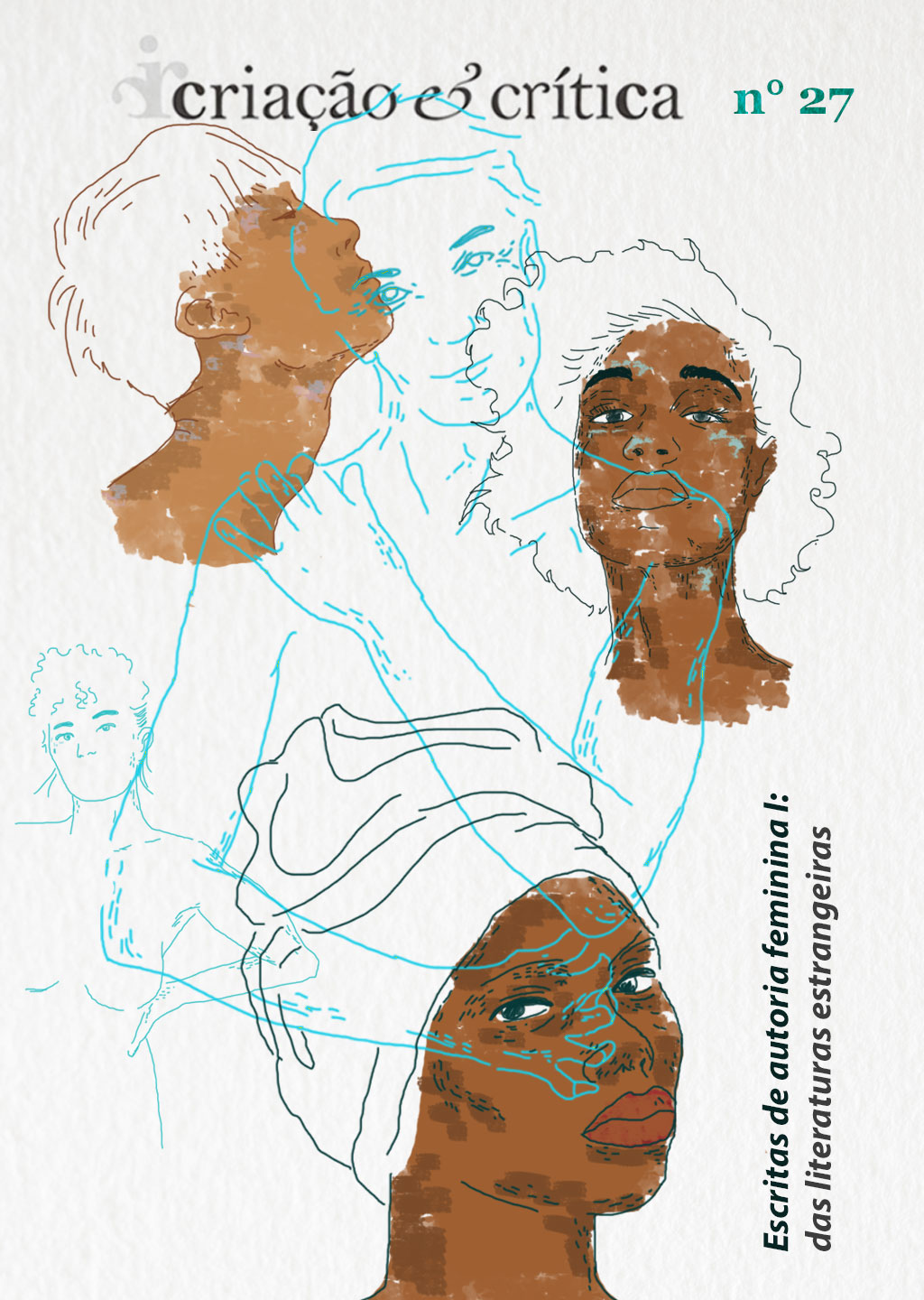A representação do feminino em duas traduções para o português brasileiro de A vegetariana, de Han Kang
DOI :
https://doi.org/10.11606/issn.1984-1124.i27p285-307Mots-clés :
Estudos da Tradução, Tradução feminista, Literatura coreana, Tradução literáriaRésumé
A escrita implica em uma materialização da subjetividade, tanto por parte da escritora/autora quanto por parte da tradutora/autora. Nesse sentido, as questões de gênero, tão importantes para como o indivíduo se vê na sociedade, se mostram um interessante ponto de discussão nos estudos da tradução. A fim de entender como o feminino é representado de maneiras distintas por tradutoras ou tradutores distintos, analisamos o caso das duas traduções para o português brasileiro do romance sul-coreano A Vegetariana, de Han Kang. Para tal, usamos como aporte teórico pensadoras da tradução feminista que apontam a centralidade da tradução na representação dos gêneros em textos literários. Com base nisso, comparamos a primeira tradução da obra no Brasil, feita por Yun Jung Im, e a retradução, feita por Jae Hyung Woo. Através da análise dos textos, percebemos que as escolhas de cada tradutor resultam em interpretações diferentes no que diz respeito às questões femininas abordadas. Como o romance tem como um de seus temas centrais a mulher e as violências que sofre na sociedade, cada uma das traduções impacta significativamente a leitura e análise literária.
##plugins.themes.default.displayStats.downloads##
Références
BASSNETT, Susan; MATOS, Naylane (trad.). Escrevendo em terra de homem nenhum: questões de gênero e tradução. Cadernos de tradução, Florianópolis, vol. 40, n. 1, p. 456-471, 2020.
BERTON-COSTA, Pâmela. Retranslation as Feminist Re-visioning: La casa de los espíritus into Brazilian Portuguese. Mutatis Mutandis, Medellín, vol. 13, n. 1, p. 183-205, 2020.
CASTRO, Olga; SPORTUNO, María Laura. Feminismos y traducción: apuntes conceptuales y metodológicos para una traductología feminista transnacional. Mutatis Mutandis, Medellín, vol. 13, n. 1, p. 183-205, 2020.
CHAMBERLAIN, Lori. Gender and the metaphorics of translation. Signs, Chicago, vol. 13, n. 3, p. 454-472, 1988.
조윤정 (CHO, Yoon Jung). 한강의 『채식주의자』에 나타나는 인간의 섭생과 트라우마 (Eating and Trauma in Han Kang’s The Vegetarian). 인문과학, Seul, vol. 64, p. 5-39, 2017.
COSTA, Luísa. Sul-coreano A Vegetariana acerta tradução no Brasil após controvérsia. Veja, 2018. Disponível em: <https://veja.abril.com.br/blog/meus-livros/a-vegetariana-de-han-kang-acerta-traducao-no-brasil-apos-controversia/>. Acesso em: 10 mai. 2019.
GODARD, Barbara; SCAFF, Marília. Anjos/ângulos: da tarefa angelical ao traduzir da mulher. Revista de Estudos de Literatura, Belo Horizonte, vol. 5, p. 155-182, 1997.
한강 (Han Kang). 채식주의자 (Chaesikjuuija). Paju: Changbi, 2007.
HAN, Kang. A Vegetariana. Tradução por Jae Hyung Woo. São Paulo: Todavia, 2018.
HAN, Kang. A Vegetariana. Tradução por Yun Jung Im. São Paulo: Devir Livraria, 2013.
IM PARK, Yun Jung. A literatura coreana no Brasil: quadro atual e desafios. Criação & Crítica, São Paulo, n. 24, p. 4-17, 2019.
KIM, Wook-Dong. The “Creative” English Translation of The Vegetarian by Han Kang. Translation Review, London, v. 100, n. 1, p. 65-80, 2018.
KIM, Won-Chung. Eating and Suffering in Han Kang’s The Vegetarian. CLCWeb: Comparative Literature and Culture, West Lafayette, vol. 21, n. 5, p. 1-10, 2019.
이찬규 (LEE, Chan Kyu); 이은지 (LEE, Eun Ji). 한강의 작품 속에 나타난 에코페미니즘 연구 -『채식주의자』를 중심으로 (An Research on Ecofeminism Shown in Han Gang’s Work - “Vegetarian” as the Center). 인문과학, Seul, vol. 46, p. 43-67, 2010.
LITERATURE TRANSLATION INSTITUTE OF KOREA. Digital Library of Korean Literature, 2020. Disponível em: <https://library.ltikorea.or.kr/statistic>. Acesso em: 19 de mai. de 2020.
PARKS, Tim. Raw and Cooked. The New York Review of Books, 2016. Disponível em: <https://www.nybooks.com/daily/2016/06/20/raw-and-cooked-translation-why-the-vegetarian-wins>. Acesso em: 27 nov. 2019.
PATRICK, Bethanne. Han Kang on Violence, Beauty, and the (Im)possibility of Innocence. Literary Hub, 2016. Disponível em: <https://lithub.com/han-kang-on-violence-beauty-and-the-impossibility-of-innocence/>. Acesso em: 19 de mai. de 2020.
PORTO, Lílian Virgínia; AGUIAR, Ofir Bergemann. Gênero e tradução: a escritora quebequense Anne Hébert em foco. Cadernos de Tradução, Florianópolis, n. 33, p. 51-70, 2014.
SANTOS, Melissa Rubio dos. Relendo a literatura coreana e o conceito de world literature: a literatura coreana contemporânea de autoria feminina por Han Kang e Park Wan Seo. Revista Athena, Cáceres, v. 14, n. 1, p. 92-107, 2018.
STOBIE, Caitlin E. The Good Wife? Sibling Species in Han Kang’s The Vegetarian. ISLE: Interdisciplinary Studies in Literature and Environment, Oxford, vol. 24, n. 4, p. 787-802, 2018.
YUN, Charse. How the bestseller ‘The Vegetarian,’ translated from Han Kang’s original, caused an uproar in South Korea. Los Angeles Time, 2017. Disponível em: <https://www.latimes.com/books/jacketcopy/la-ca-jc-korean-translation-20170922-story.html>. Acesso em: 27 nov. 2019.
ZOLKOS, Magdalena. Bereft of Interiority: Motifs of Vegetal Transformation, Escape and Fecundity in Luce Irigaray's Plant Philosophy and Han Kang's The Vegetarian. SubStance, Baltimore, vol. 48, n. 2, p. 102-118, 2019.
Téléchargements
Publiée
Numéro
Rubrique
Licence
(c) Copyright Carolina Guimarães 2020

Ce travail est disponible sous licence Creative Commons Attribution - Pas d’Utilisation Commerciale - Partage dans les Mêmes Conditions 4.0 International.
Les auteurs qui publient dans cette revue acceptent les termes suivants :
- Les auteurs conservent le droit d'auteur et accordent à la revue le droit de première publication, avec le travail sous la Licence Creative Commons Attribution qui permet le partage du travail avec reconnaissance de l'auteur et de la publication initiale dans cette revue scientifique.
- Les auteurs sont autorisés à assumer des contrats supplémentaires séparément, pour une distribution non exclusive de la version de la contribution publiée dans cette revue (par exemple, publication institutionnelle ou en tant que chapitre de livre), avec reconnaissance de la publication initiale et originale dans cette revue.
- Les auteurs sont autorisés et encouragés à publier et distribuer leur travail en ligne (par exemple auprès de leurs institutions ou sur leur page personnelle) à tout moment avant ou pendant le processus éditorial, car cela peut générer des échanges académiques productifs, ainsi qu'une croissance de l'impact et de la citation de l'article publié (Voir The Effect of Open Access).



